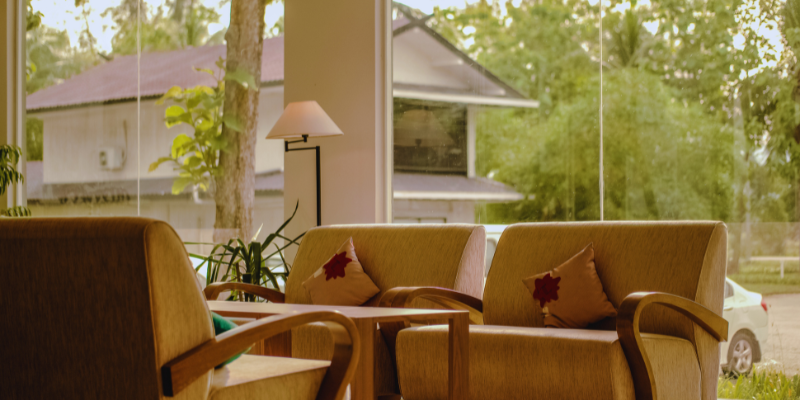
Understanding Property Vacancy Laws in Detroit, Mi
If Detroit, MI homeowners want to get the most money for their home, they need to know the rules about leaving their home empty. There are rules in the city about how long an empty house can stay empty, and it’s important to follow them to stay out of trouble with the law. If someone doesn’t live in a house for more than 30 days, the owner has to report it to the city.
If you don’t register or take care of the property, you could get fined a lot of money and get unwanted attention from the government. Detroit also has strict rules about property upkeep. People who own empty homes must keep them safe and in good shape. That means that boarded-up windows aren’t enough; you also need to keep the yard mowed, make sure all the doors and windows are locked, and clean up the outside.
By following these rules, homeowners can avoid penalties and protect their property value while it’s sitting empty.
As trusted cash home buyers in Detroit, we make fair cash offers, take care of the paperwork, and close on your timeline.
Key Considerations for Leaving Your Home Vacant in Detroit

Leaving your home vacant in Detroit comes with risks that go beyond simply locking the front door and walking away. A vacant home can attract vandalism, theft, or trespassing, all of which can lead to damage and a drop in property value. Taking the time to make sure your home is secure and well-maintained can make a big difference.
Detroit’s ordinances require vacant properties to be registered with the city, and this includes meeting certain upkeep standards to avoid fines. You’ll also want to check your insurance policy, since some companies reduce or cancel coverage after a home sits empty for more than a month.
Taking care of your lawn, cleaning your bushes, or even just setting your lights on timers can help keep your house from looking like it’s been left behind. These steps will help keep your home’s worth high and improve the look of your Detroit neighborhood as a whole.
If you’re searching for a reliable company that buys homes in Detroit, give us a call at (586) 209-3290 for a no-obligation offer..
Legal Implications of Long-term Property Vacancy in Detroit
Leaving a home vacant in Detroit without understanding the legal consequences can create serious headaches. The city mandates that vacant homes be registered, and that includes meeting specific requirements and paying related fees. Ignoring these steps could mean large fines or even court action.
Along with being registered with the city, Detroit homeowners must also keep their homes in good shape according to the city’s safety and care rules. To avoid being called a public nuisance or blighted property, this means having the property clean, safe, and free of hazards.
Insurance companies may also raise rates or limit coverage on vacant homes, which adds another layer of legal and financial pressure. Allowing a property to sit empty without oversight may result in trespassers, squatting, or other issues that can escalate into legal disputes. Taking care of legal responsibilities now can help avoid long-term problems and protect the home’s value in the future.
Financial Impacts of Leaving a Property Unoccupied in Detroit
In Detroit, leaving a property empty can cost you more than you think. When a house is empty for 30 to 60 days, some insurance companies may even drop coverage, and the prices may go up. That means you might have to pay for everything if something goes wrong.
Also, the City of Detroit may fine properties that aren’t listed or aren’t well taken care of, which will add to the costs. Also, if you don’t take care of an empty house, it can lose value quickly, making it harder to sell or rent out later. Long-term empty homes are also more likely to be squatted, vandalized, or even dumped illegally, which can cost a lot to clean up.
Utilities can also be a problem. For example, if you don’t take care of your heating systems properly in the winter, you could end up with frozen lines or water damage. If you own a home and are thinking about leaving it empty, you should think about these costs ahead of time to protect your bottom line.
Insurance Requirements for Vacant Homes in Michigan

Many homeowners don’t realize that a standard insurance policy may not cover their house if it sits empty too long. In Michigan, and especially in Detroit, most insurers consider a property vacant after 30 to 60 days, and coverage can become limited or even voided.
Because of this, it’s important to let your insurance company know if your home will be empty. Most of the time, you’ll need to get a separate insurance just for homes that are empty. Most of the time, these plans protect you from fire, theft, vandalism, and certain liabilities, like someone getting hurt on your property while it’s empty.
While vacant home insurance does come with a higher premium, it’s worth it to avoid major losses. It also ensures you’re in compliance with your mortgage requirements, if applicable. Taking this extra step can prevent huge problems later and help you hold onto your property’s value even while it’s not in use.
Security Measures for Unoccupied Properties in Detroit
It takes more than locking the front door to keep a Detroit house safe when no one is there. Putting in a security system with cameras and alarms is a smart way to keep your belongings safe and keep people from breaking in. Some people even put up signs on their property to let people know that it’s being watched.
A smart step is to place exterior lights on a timer, creating the appearance that someone is home. Regular check-ins by a trusted friend, neighbor, or property manager can help spot early issues such as broken windows, leaks, or tampering.
Maintaining the property’s exterior is also key. Overgrown grass and piles of mail are clear signs that a home is vacant, which invites unwanted attention. By taking these steps, you’ll reduce the chance of criminal activity and help maintain your property’s value during its vacancy.
Managing Utilities and Services for Vacant Detroit Properties
It can be hard to keep track of services when a house is empty. You don’t want to waste money, though. On the other hand, you need to keep the home’s core safe. For instance, if the heat isn’t kept up in the winter, lines could freeze and break, which would cost a lot to fix.
Many homeowners use smart thermostats and monitoring tools to remotely control electricity and heating. These tools help keep systems functioning safely while minimizing energy usage. It’s also smart to shut off unnecessary services like cable or internet while keeping water and electricity on at a basic level.
You should also schedule regular service visits to ensure everything is working properly. Small problems can become big ones if they go unnoticed. Taking care of utilities and routine upkeep keeps your home in good shape and avoids extra costs when you’re ready to move back in or sell.
Seasonal Considerations for Leaving Your House Empty in Michigan
Michigan’s winters can be tough on vacant homes, and Detroit is no exception. Freezing temperatures can cause pipes to burst and lead to major water damage. That’s why winterizing your property is one of the most important things you can do before leaving it empty.
This includes insulating pipes, draining water lines, and making sure the heating system stays at a safe temperature. Roof damage from ice dams or heavy snow is another common issue, so regular inspections during the winter months are essential.
It’s also important to keep sidewalks and driveways clear of snow, not just for safety but to give the impression that the house is being cared for. Changes in humidity can also lead to mold or mildew, so ventilation and dehumidifiers may be necessary. Being proactive with seasonal maintenance helps preserve your investment and reduce costly surprises when the seasons change.
Top Tips for Maintaining a Vacant Home in Michigan
A vacant home still needs regular care to retain its value and stay secure. One of the most effective ways to do this is with routine inspections, which help catch small problems before they become expensive disasters. Water leaks, pests, and mold are common issues that can go unnoticed in unoccupied homes.
Exterior maintenance is also important—things like mowing the lawn, trimming bushes, and keeping the yard clean make it less obvious the home is vacant. That visibility helps deter vandalism and illegal activity.
Make sure windows and doors are properly locked, and install a reliable security system if possible. Keep utilities on at a minimum to prevent plumbing problems, especially in colder months. Finally, a trusted neighbor or friend who can check in occasionally provides an extra layer of oversight. These small steps go a long way in protecting your property and keeping it market-ready.
Expert Advice on Protecting a Vacant Home From Vandalism

If your home will be vacant for any length of time, protecting it from vandalism is essential. One of the best ways to do this is by making the home look occupied. That includes keeping the lawn cut, having exterior lights on a timer, and removing mail or flyers from the porch.
Security systems with cameras are a must in Detroit. Not only do they deter bad actors, but they also record incidents in case anything does happen. Reinforcing doors and windows with strong locks adds another level of security.
Ask a friend, neighbor, or professional to check in regularly. A visible presence goes a long way in deterring criminal activity. These basic actions can keep your home safe while it’s empty, and preserve its value and condition when it’s time to reoccupy or sell.
Neighborhood Watch Programs and Their Role in Protecting Empty Homes
In Detroit, neighborhood watch programs are one of the best ways to protect vacant homes. These programs involve residents working together to monitor local properties and report any suspicious activity to the authorities.
Having eyes on the street means homes are less likely to be targeted by vandals or squatters. This community awareness also helps protect the neighborhood as a whole, which can improve property values across the board.
If your home is going to be empty, getting involved with or alerting your local neighborhood watch group can offer peace of mind. It’s a cost-effective way to keep your property safe while you’re away. The more the community works together, the more secure the entire area becomes.
How Long Can a Home Be Unoccupied?
There’s no strict law saying how long a home can be left empty in Detroit, but it’s risky to let it sit unoccupied for too long. After 30 to 60 days, your insurance company may consider the home vacant and limit your coverage.
Detroit also requires homeowners to maintain the home’s appearance during vacancy. That means keeping up with lawn care, boarding up broken windows, and making sure it doesn’t become a safety hazard or neighborhood eyesore.
Leaving a home unattended without checking in regularly can invite problems like vandalism, theft, or deterioration. These issues reduce the property’s marketability and value, making it harder to sell when the time comes. Staying proactive helps protect your investment and keeps your property in good standing with both the city and potential buyers.
How Long Can I Leave My House Empty?
Technically, you can leave a house empty for as long as you want—but that doesn’t mean you should. After about 30 to 60 days, most insurance companies will limit or cancel coverage unless you purchase a separate vacant home policy.
Also, a house left alone too long becomes a magnet for vandalism, squatters, or damage from neglect. In Detroit, where some neighborhoods still struggle with high vacancy rates, an empty home can attract unwanted attention fast.
To reduce risk, it’s important to stay on top of regular maintenance, keep essential utilities running, and put strong security measures in place. These simple actions go a long way in protecting your investment and preventing your home’s value from dropping while it sits vacant. If you’re ready to sell your house fast in Roseville, taking these precautions now can also help you attract serious buyers more quickly.
What Is the Vacancy Rate in Detroit?
Detroit has long had a higher-than-average vacancy rate, although there have been improvements in recent years. Certain neighborhoods still struggle with a large number of empty homes, which can affect both market value and crime rates.
Keeping tabs on the vacancy rate in your area helps you understand market trends and set realistic expectations if you plan to sell or rent. Higher vacancy often means stiffer competition and possibly lower prices. On the other hand, strategic improvements or renovations can help your property stand out.
Detroit’s housing market is still evolving, and staying informed on local vacancy data gives you a competitive edge. Whether you’re holding onto a vacant home or getting ready to sell, being aware of market conditions is key.
How to Register a Vacant Property in Detroit?
Registering a vacant property in Detroit is a necessary step for compliance and protection. To start, download and complete the Vacant Property Registration form from the Buildings, Safety Engineering, and Environmental Department (BSEED).
You’ll need to include your name, contact details, property address, and current status of the property. A registration fee will also be required, and the amount depends on the type and size of the property. Once you submit the form and fee, you’ll need to renew annually to avoid penalties.
Proper registration helps you stay on the right side of the law and shows you’re taking responsibility for your home. It also helps support local efforts to keep Detroit’s neighborhoods safe, clean, and thriving.
Need to sell your home quickly and hassle-free? Whether you’re trying to avoid costly repairs, skip realtor commissions, or just want a straightforward sale, Blue Moon Acquisitions can help. We make the process easy—reach out today to get started!
Helpful Detroit Blog Articles
- Selling A Hoarder House In Detroit, MI
- Short Sale For Your Detroit, MI, Home
- Selling Your Inherited House In Detroit, MI
- Sell Your Parents’ Home In Detroit, MI, Using Power Of Attorney
- Managing Delinquent HOA Dues In Detroit, MI
- Appraisal-Required Repairs For Home Sellers In Detroit, MI
- Can You Sell a House With Asbestos in Detroit, MI
- Selling Your Detroit, MI, Home With an HELOC
- How Long Can You Leave A House Vacant In Detroit, MI?
- Strategies To Minimize Closing Costs When Buying A Home In Detroit, MI
- Selling Jointly Owned Real Estate In Detroit, MI
- Selling Inherited Real Estate With Multiple Owners In Detroit, MI

| UNINSURED | INSURANCE COMPANY | INSURANCE CLAIMS | SURCHARGE | CASH | |
| CEILING | TAX | TAXES | STRESS | PROBATE | POLICE |
| MORTGAGE | MORTGAGE LENDERS | LIEN | LICENSE | EMERGENCY | PROPERTY TAXES |
| MOTHER | LEGAL ADVICE | TENANTS | LANDLORD | INCOME | ILLEGAL DUMPING |
| HEALTH | FORECLOSURE | CERTIFICATE OF REGISTRATION |
